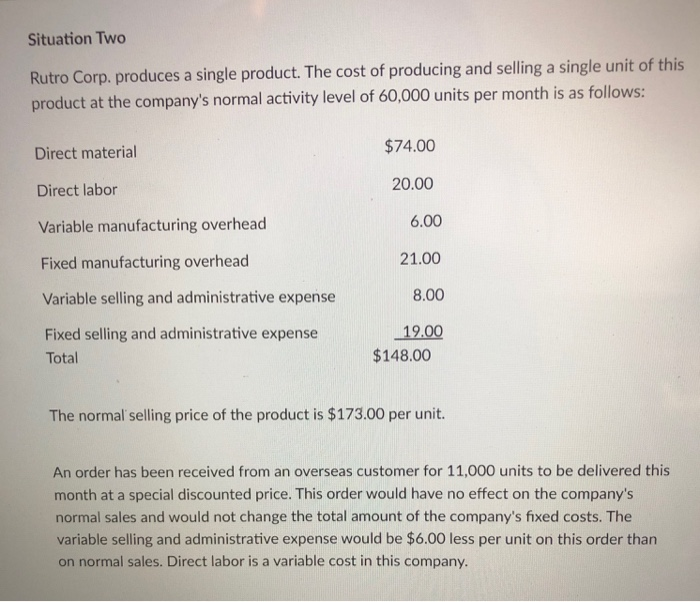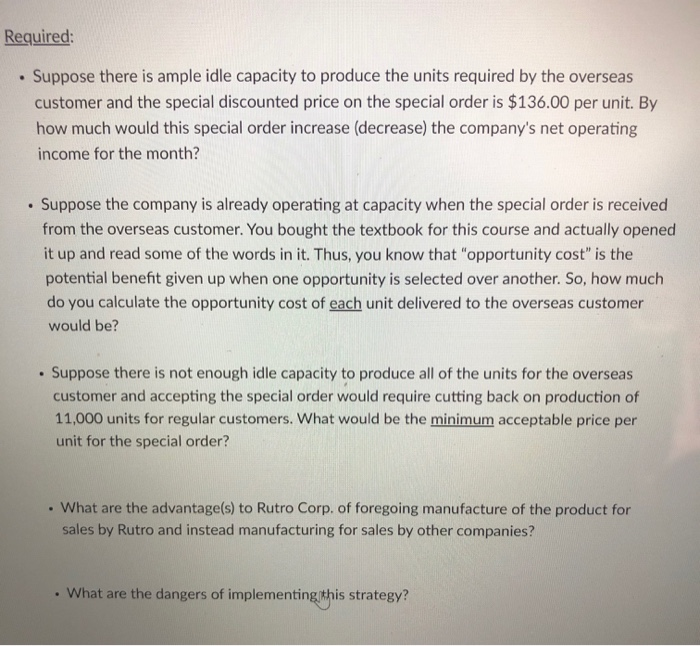Situation Two Rutro Corp. produces a single product. The cost of producing and selling a single unit of this product at the company's normal activity level of 60,000 units per month is as follows: Direct material $74.00 Direct labor 20.00 Variable manufacturing overhead 6.00 21.00 8.00 Fixed manufacturing overhead Variable selling and administrative expense Fixed selling and administrative expense Total 19.00 $148.00 The normal selling price of the product is $173.00 per unit. An order has been received from an overseas customer for 11,000 units to be delivered this month at a special discounted price. This order would have no effect on the company's normal sales and would not change the total amount of the company's fixed costs. The variable selling and administrative expense would be $6.00 less per unit on this order than on normal sales. Direct labor is a variable cost in this company. Required: Suppose there is ample idle capacity to produce the units required by the overseas customer and the special discounted price on the special order is $136.00 per unit. By how much would this special order increase (decrease) the company's net operating income for the month? Suppose the company is already operating at capacity when the special order is received from the overseas customer. You bought the textbook for this course and actually opened it up and read some of the words in it. Thus, you know that "opportunity cost" is the potential benefit given up when one opportunity is selected over another. So, how much do you calculate the opportunity cost of each unit delivered to the overseas customer would be? . Suppose there is not enough idle capacity to produce all of the units for the overseas customer and accepting the special order would require cutting back on production of 11,000 units for regular customers. What would be the minimum acceptable price per unit for the special order? What are the advantage(s) to Rutro Corp. of foregoing manufacture of the product for sales by Rutro and instead manufacturing for sales by other companies? What are the dangers of implementing this strategy








